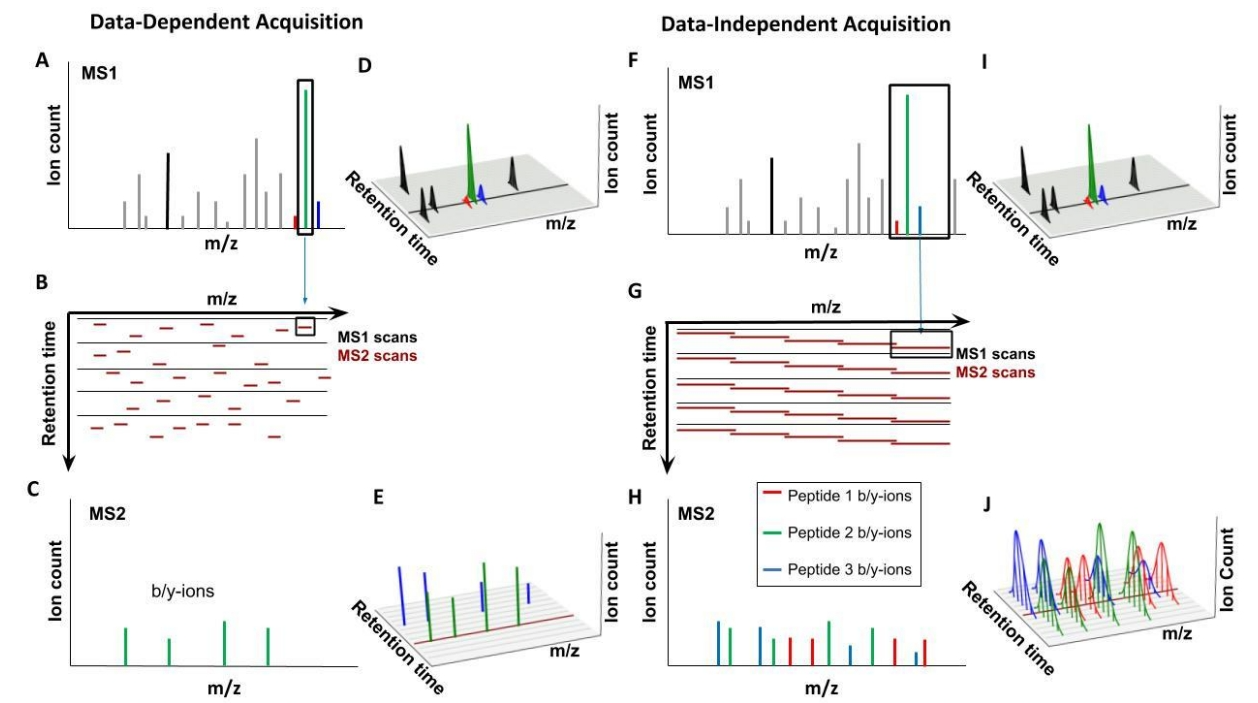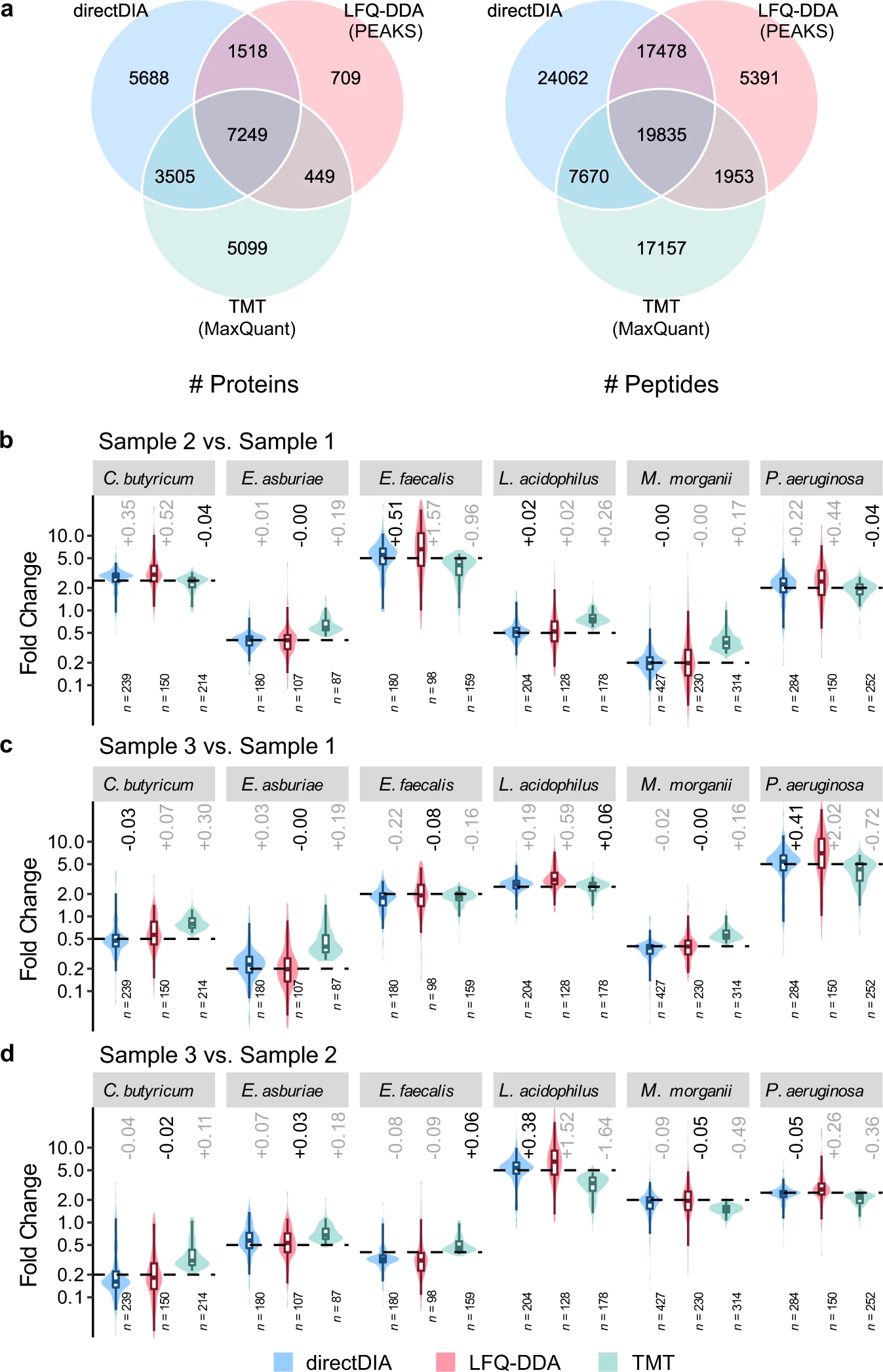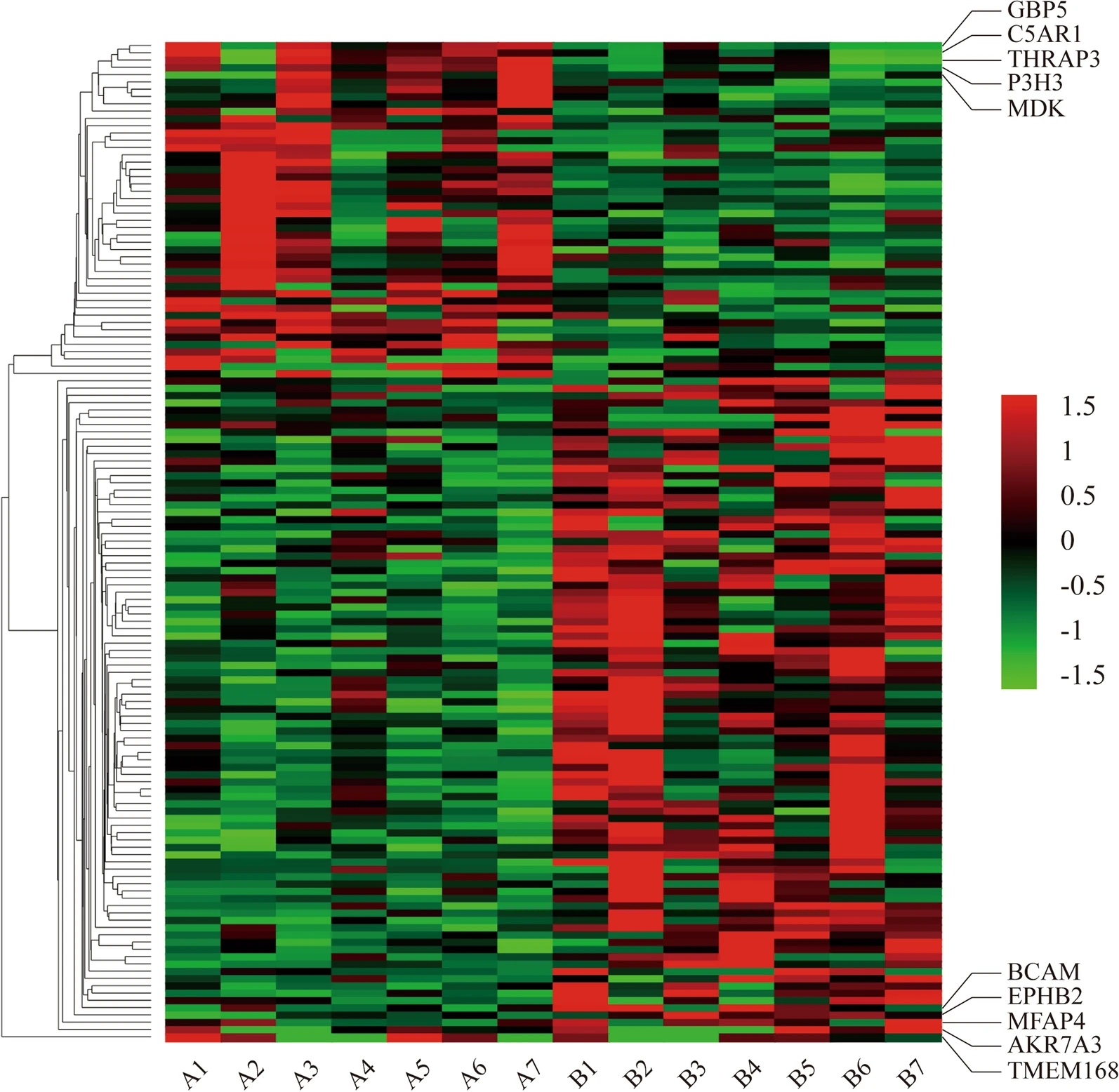High-Quality DIA Mass Spectrometry Data Acquisition
DIA (data-independent acquisition) mass spectrometry is a cutting-edge proteomics technique that employs a systematic full-scan mode to achieve unbiased and segmented acquisition of mass spectrometry signals. This approach enables comprehensive proteome coverage and accurate quantification in complex biological samples. Compared to traditional DDA (data-dependent acquisition), DIA mass spectrometry data acquisition eliminates ion selection biases, significantly enhancing data reproducibility, dynamic range, and the detection sensitivity for low-abundance proteins. As a result, DIA mass spectrometry has become a cornerstone technology in modern proteomics research.
MtoZ Biolabs provides High-Quality DIA Mass Spectrometry Data Acquisition services that play a crucial role in disease mechanism studies, drug target identification, and multi-omics integration by systematically profiling protein expression, post-translational modifications, and interaction networks The effectiveness of this approach relies on optimized acquisition strategies and advanced computational algorithms. Leveraging Thermo Fisher’s Q Exactive HF, Orbitrap Fusion, and Orbitrap Fusion Lumos mass spectrometry platforms, along with SWATH and V-SWATH acquisition methods, MtoZ Biolabs delivers a comprehensive workflow from experimental design to in-depth data analysis, enabling researchers to overcome challenges in complex proteome characterization.
Technical Principles
MtoZ Biolabs' High-Quality DIA Mass Spectrometry Data Acquisition services employ the DIA strategy to ensure comprehensive, reproducible, and highly sensitive proteomic data acquisition. Unlike DDA, which selects specific precursor ions for fragmentation, DIA systematically scans all ions within defined m/z segments, generating highly structured MS2 spectra. This methodology prevents peptide loss due to signal intensity bias and significantly improves data reproducibility and quantification accuracy. DIA mass spectrometry also enables high-throughput analysis by capturing extensive fragment ion information, leading to enhanced proteome coverage.

Pappireddi, N. et al. ChemBioChem. 2019.
Services at MtoZ Biolabs
MtoZ Biolabs' High-Quality DIA Mass Spectrometry Data Acquisition services are designed to maximize proteome coverage through data-independent acquisition, fragmenting and detecting all precursor ions across the full m/z range without bias toward specific ions. This strategy is particularly advantageous for analyzing complex biological samples and low-abundance proteins. The key DIA mass spectrometry acquisition methods we employ include:
· SWATH (Sequential Window Acquisition of All Theoretical Ions): Enables extensive proteome coverage by sequentially acquiring data across specific m/z windows, ensuring high reproducibility and comprehensive protein profiling.
· V-SWATH (Variable Window SWATH): Dynamically adjusts acquisition window widths based on precursor ion density to enhance dynamic range and quantification accuracy.
· BoxCar DIA: Uses overlapping acquisition windows to increase data collection efficiency and flexibility.
· MSX DIA: Introduces an additional fragmentation stage to capture a more extensive range of fragment ions, thereby improving proteome depth and quantitative accuracy.
Service Advantages
MtoZ Biolabs offers full-spectrum High-Quality DIA Mass Spectrometry Data Acquisition services that cover everything from sample preparation and data acquisition to in-depth computational analysis, ensuring high-quality proteomics results. Our key advantages include:
1. Comprehensive DIA Data Acquisition
Leveraging SWATH, V-SWATH, BoxCar DIA, and other state-of-the-art acquisition strategies to ensure full proteome coverage and superior data reliability.
2. High-Resolution Proteomic Analysis
Utilizing high-resolution mass spectrometers to achieve exceptional sensitivity and accuracy, making it particularly effective for identifying low-abundance proteins in complex biological samples.
3. Tailored Data Analysis & Reporting
Offering customizable data analysis services, including quantitative proteomics, differential expression analysis, and biomarker discovery, tailored to specific research objectives.
4. End-to-End Technical Support
Providing expert consultation and technical assistance throughout experimental design, data acquisition, and analysis, ensuring seamless project execution.
Applications
High-quality DIA mass spectrometry data acquisition is widely applied across various proteomics research areas, significantly contributing to advancements in biomedical and industrial applications:
· Biomedical Research: Identifying disease-associated proteomic changes and discovering novel biomarkers.
· Drug Discovery & Development: Evaluating drug mechanisms of action and identifying therapeutic targets.
· Clinical Proteomics: Investigating disease-related molecular mechanisms and supporting precision medicine initiatives.
· Agricultural Science: Studying plant stress response mechanisms and profiling agriculturally relevant proteins.
· Food Safety & Quality Control: Detecting protein contaminants in food products to ensure compliance with safety regulations.
Case Study
Case 1: Application of High-Quality DIA Mass Spectrometry Data Acquisition in Gut Microbiota Research
This study employed high-quality DIA mass spectrometry data acquisition for a metaproteomic analysis of the human gut microbiome. Compared to conventional MS-based quantification techniques, directDIA demonstrated superior performance in analyzing microbial communities and fecal samples. The research team successfully quantified and annotated approximately 70,000 microbial proteins from fecal samples of patients with pancreatic cancer and mild cognitive impairment, revealing distinct microbial community compositions and functional characteristics associated with different disease states. These findings underscore the potential of high-quality high-quality DIA mass spectrometry data acquisition in microbiome research and disease pathogenesis studies.

Zhao, J. Z. et al. NPJ Biofilms Microbiomes. 2023.
Case 2: High-Quality DIA Mass Spectrometry Data Acquisition Facilitates EBVaGC Proteomics Research & Biomarker Discovery
In this study, high-quality DIA mass spectrometry data acquisition was employed to conduct a proteomic analysis of Epstein-Barr virus-associated gastric cancer (EBVaGC), leading to the precise identification of 137 differentially expressed proteins. Bioinformatics analyses revealed their roles in tumor metabolism and immune regulation. Multi-omics integration and experimental validation confirmed GBP5 as a potential biomarker, demonstrating the powerful capabilities of DIA-MS in high-throughput protein identification and accurate quantification. These findings provide critical insights into EBVaGC pathogenesis and targeted therapy development, highlighting the significance of High-Quality DIA Mass Spectrometry Data Acquisition service in disease proteomics and precision medicine.

Wang, Z. Y. et al. Cancer Cell Int. 2021.
MtoZ Biolabs is dedicated to delivering cutting-edge DIA mass spectrometry services, empowering researchers to achieve groundbreaking discoveries in proteomics. If you require high-quality DIA mass spectrometry data acquisition, please contact us—we provide customized solutions and expert technical support tailored to your research needs!
How to order?







